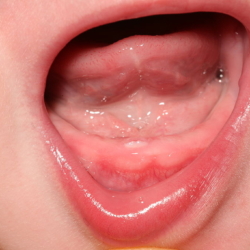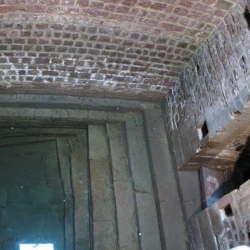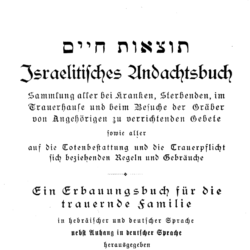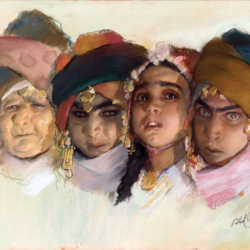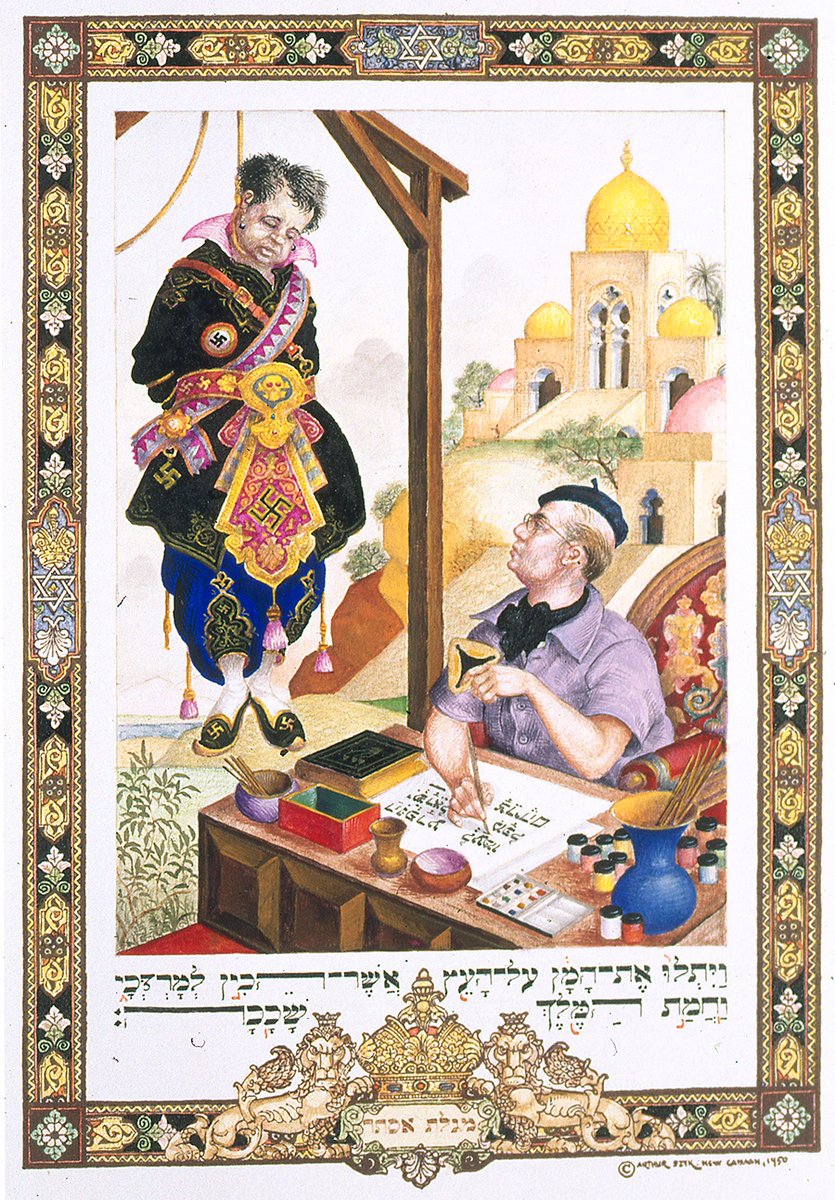the Open Siddur Project ✍︎ פְּרוֹיֶּקט הַסִּדּוּר הַפָּתוּחַ
a community-grown, libre Open Access archive of Jewish prayer and liturgical resources
This project is sustained through reciprocity for those sharing prayers and crafting their own prayerbooks.
Get Involved ✶ Upload Work ✶ Donate ✶ Giftshop בסיעתא דשמיא |
A traditional tefilat haderekh supplemented by a 20th century prayer for airplane travel. . . . Kavvanah before eating or drinking on Yom Kippur for those who must eat for the safety of their life, as found in Torat ha-Yoledet (Rabbi Yitzchok Zilberstein 1983)This is a kavvanah (intention) for anyone in a desperate circumstance of needing to eat or drink for their mortal health, to do so with the full confidence that they are fulfilling a mitsvah required for them in the Torah, to preserve their life. The kavvanah was related by Rav Yitschok Zilberstein in his Toras haYoledes (1983), chapter 52, section 10, p. 357 (pp. 331-332 in the bilingual edition 1989), “הועתק ממחזור עתיק” (as “copied from an old maḥzor”). Unfortunately, we can’t provide a more direct reference to this maḥzor. If you know, please leave a comment or contact us. . . . This prayer for the country is found in the Siddur Sephat Emeth, which was published by the venerable Rödelheim publishing house in Frankfurt in 1938. This was probably the last siddur ever published in pre-Holocaust Germany. This prayer is full of pathos and yearning, and in a time of rising government-sponsored antisemitism worldwide it’s worth keeping in mind. . . . צער בעלי־חיים | Tsaar Baalei Ḥayyim [It is forbidden to cause] suffering to a living creature, a song in Yiddish“Tsaar Balei Ḥayyim” ([It is forbidden to cause] suffering to a living creature), source unknown. Many thanks to Tiferet Zimmern-Kahan for recording the niggun for the song and to Naftali Ejdelman and The Jewish Daily Forward for providing the lyrics. . . . This is a faithful transcription of the תחנה פון ליכט בענטשין (“Tkhine for Lighting Candles [for Shabbes]”) as it appeared in the Vilna, 1869 edition. I have transcribed it without any changes from The Merit of Our Mothers בזכות אמהות A Bilingual Anthology of Jewish Women’s Prayers, compiled by Rabbi Tracy Guren Klirs, Cincinnati: Hebrew Union College Press, 1992. shgiyot mi yavin, ministarot nakeni. If you can scan an image of the page from the 1869 edition this was originally copied from, please share your scan with us. . . . This is a faithful transcription of the תְּחִנָּה מִגְדַּל הַשֵּׁן (“Tkhine for a Baby’s First Tooth”) which first appeared in ש״ס תחנה חדשה (Shas Tkhine Ḥaḥadasha), a collection of tkhines published by Ben-Zion Alfes in Vilna, 1922. . . . תחנה פאר אמוטער װאס פירט אקינד אין חדר | Tkhine for a Mother Leading their Child to Religious School (1910)“Tkine for a Mother Who Leads Her Child to Kheyder” by an unknown author is a faithful transcription of the tkhine published in Rokhl m’vakoh al boneho (Raḥel Weeps for her Children), Vilna, 1910. I have transcribed it without any changes from The Merit of Our Mothers בזכות אמהות A Bilingual Anthology of Jewish Women’s Prayers, compiled by Rabbi Tracy Guren Klirs, Cincinnati: Hebrew Union College Press, 1992. shgiyot mi yavin, ministarot nakeni. Please offer a translation of this tkhine in the comments. . . . א תחנה פאר א מוטער װאס פירט איהר קינד דעם ערשׁטען מאל אין חדר | Tkhine for a Mother Who Leads their Child for the First Time to Religious School (1910)“Tkine for a Mother Who Leads Her Child to Kheyder” by an unknown author is a faithful transcription of the tkhine published in Rokhl m’vakoh al boneho (Raḥel Weeps for her Children), Vilna, 1910. I have transcribed it without any changes from The Merit of Our Mothers בזכות אמהות A Bilingual Anthology of Jewish Women’s Prayers, compiled by Rabbi Tracy Guren Klirs, Cincinnati: Hebrew Union College Press, 1992. shgiyot mi yavin, ministarot nakeni. Please offer a translation of this tkhine in the comments. . . . “Tkhine for when a Woman Goes to Immerse in the Mikve” by an unknown author is a faithful transcription of the tkhine published in Rokhl m’vakoh al boneho (Raḥel Weeps for her Children), Vilna, 1910. I have transcribed it without any changes from The Merit of Our Mothers בזכות אמהות A Bilingual Anthology of Jewish Women’s Prayers, compiled by Rabbi Tracy Guren Klirs, Cincinnati: Hebrew Union College Press, 1992. shgiyot mi yavin, ministarot nakeni. If you can translate Yiddish, please help to translate it and share your translation with an Open Content license through this project. . . . This tkhine offers a formula for providing relief to a very ill person, and as such, should only be used as a supplement to recommendations provided by an expert physician or nurse. The source of the tkhine is Tkhine of a Highly Respected Woman, Budapest, 1896; and transcribed from The Merit of Our Mothers בזכות אמהות A Bilingual Anthology of Jewish Women’s Prayers, compiled by Tracy Guren Klirs, Cincinnati: Hebrew Union College Press, 1992. . . . אֵל שְׁמֹר הַמַּלְכָּה | God Save the Queen (adapted from the Hebrew translation of Hyman Hurwitz 1831)“God Save the Queen” is an adaptation of “God Save the King,” a work by an unknown author, first circulated in three stanzas during the reign of Britain’s King George Ⅱ, circa 1745. This Hebrew translation was published in a pamphlet circulated by New Road (Whitechapel) Synagogue in 1892 “on the 73rd Birthday of Her Majesty Queen Victoria,” an event attended by then chief rabbi of the British Empire, Rabbi Dr. Hermann Adler. . . . תְּחִנָה לְשַׁבָּת מְבָרְכִים רֹאשׁ חוֺדֶשׁ סִיוָן | Tkhine for Shabbat Mevorkhim Rosh Ḥodesh Sivan (1877)שבת מבורכים shabbat mevorkhim, Gemini, martyrdom, Twins, תחינות teḥinot, Zevulun, 19th century C.E., Ashkenaz, Torah as intercessor, talmud torah, 57th century A.M., in the merit of martyrs, תחינות tkhines, paraliturgical teḥinot, children, Jewish Women's Prayers, Yiddish vernacular prayer, Leah, paraliturgical birkat haḥodesh, new moon, Mazal Teomim, Needing Proofreading, Needing Attribution To the best of my ability, this is a faithful transcription of the תְּחִנָה לְשַׁבָּת מְבָרְכִים רֹאשׁ חוֺדֶשׁ סִיוָן (“Tkhine for Shabbat Mevorkhim Rosh Ḥodesh Sivan”) which appeared in תחנות מקרא קודש (Teḥinot Miqra Qodesh, Widow and Brothers Romm, Vilna 1877) before its adaptation in Shas Tkhine Ḥadashe (Ben-Tsiyon Alfes 1910), the source from which this translation was made. English translation adapted slightly from Techinas: A Voice from the Heart “As Only A Woman Can Pray” by Rivka Zakutinsky (Aura Press, 1992). –A.N. Varady . . . תְּחִנָה לְשַׁבָּת מְבָרְכִים רֹאשׁ חוֺדֶשׁ תַּמּוּז | Tkhine for Shabbat Mevorkhim Rosh Ḥodesh Tamuz (1877)This is a faithful transcription of the תְּחִנָה לְשַׁבָּת מְבָרְכִים רֹאשׁ חוֺדֶשׁ תַּמוּז (“Tkhine for Shabbat Mevorkhim Rosh Ḥodesh Tamuz”) which appeared in תחנות מקרא קודש (Teḥinot Miqra Qodesh, Widow and Brothers Romm, Vilna 1877) before its adaptation in Shas Tkhine Ḥadashe (Ben-Tsiyon Alfes 1910), the source from which this translation was made. English translation adapted slightly from Techinas: A Voice from the Heart “As Only A Woman Can Pray” by Rivka Zakutinsky (Aura Press, 1992). –A.N. Varady . . . תְּחִנָה לְשַׁבָּת מְבָרְכִים רֹאשׁ חוֺדֶשׁ מְנַחֵם אָב | Tkhine for Shabbat Mevorkhim Rosh Ḥodesh Menaḥem Av (1877 and 1910)This is a faithful transcription of the תְּחִנָה לְשַׁבָּת מְבָרְכִים רֹאשׁ חוֺדֶשׁ מְנַחֵם אָב (“Tkhine for Shabbat Mevorkhim Rosh Ḥodesh Menaḥem Av”) as printed in Shas Tkhine Ḥodoshe (1910) and תחנות מקרא קודש (Teḥinot Miqra Qodesh, Widow & Brothers Romm, Vilna 1872/3, 1877). English translation adapted slightly from Techinas: A Voice from the Heart “As Only A Woman Can Pray” by Rivka Zakutinsky (Aura Press, 1992). Using Shas Tkhine Ḥodoshe as her source, Moreh Zakutinsky probably had not seen the additional paragraph in the earlier printing. –A.N. Varady . . . תְּחִנָה לְשַׁבָּת מְבָרְכִים רֹאשׁ חוֹדֶשׁ אֶלוּל | Tkhine for Shabbat Mevorkhim Rosh Ḥodesh Elul (1877)To the best of my ability, this is a faithful transcription of the תְּחִנָה לְשַׁבָּת מְבָרְכִים רֹאשׁ חוֺדֶשׁ אֶלוּל (“Tkhine for Shabbat Mevorkhim Rosh Ḥodesh Elul”) which appeared in תחנות מקרא קודש (Teḥinot Miqra Qodesh, Widow and Brothers Romm, Vilna 1877). English translation adapted slightly from Techinas: A Voice from the Heart “As Only A Woman Can Pray” by Rivka Zakutinsky (Aura Press, 1992). –A.N. Varady . . . The Birkat Habayit is perhaps the most popular blessing in the Jewish world, appearing as a hanging amulet inside the entrance of many houses of Jews of all streams. I have added niqud to the blessing and I am very grateful to Gabriel Wasserman for his corrections to my vocalization. . . . תפילת הזכרת הורים כשאין מניין לאמירת קדיש | “Gebet Statt Ḳaddisch” Memorial Prayer For When There is No MinyanPlease Lord, Sovereign of Compassion, God, Arbiter of the spirits of all flesh, Parent of Orphans and Judge of widows: God, from the source of Your holiness! May my prayer and the Torah of life that I have learned come before you on account of the soul . . . This tekhina (supplication) upon candlelighting for Shavuot in Hebrew and Yiddish appears in the Maḥzor for Shavuot Rav Peninim (Vilna 1911) although we are uncertain whether it first appeared here. We welcome your help in correctly attributing and translating it. . . . א תחנה פאר א כלה קודם החופה | A Tkhine for a Bride [to say] before the Khupe [wedding canopy ceremony]“A Tkhine for a Kaleh before the Khupe” by an unknown author is a faithful transcription of the version published in Rokhl m’vakoh al boneho (Rokhel Weeps for her Children), Vilna, 1910. I have transcribed it without any changes from The Merit of Our Mothers בזכות אמהות A Bilingual Anthology of Jewish Women’s Prayers, compiled by Rabbi Tracy Guren Klirs, Cincinnati: Hebrew Union College Press, 1992. shgiyot mi yavin, ministarot nakeni. . . . Paraliturgical Prayer for the New Month, שבת מבורכים shabbat mevorkhim, תחינות teḥinot, Ashkenaz, 56th century A.M., paraliturgical teḥinot, Jewish Women's Prayers, 18th Century C.E., Yiddish vernacular prayer, תחינות tkhines, paraliturgical birkat haḥodesh, Needing Proofreading, Needing Attribution The teḥinah for the blessing of the new moon is said each Shabbat Mevorkhim, addition to the specific teḥinah for that month. The prayer is recited when the Aron HaKodesh is opened, signifying the opening of the Heavenly gates of mercy (an especially propitious time to pray for health, livelihood, and all good). . . . A prayer for a pregnant woman anticipating childbirth, from an unidentified volume of the Seder Tkhines (circa 1640-1720). . . . A prayer of a pregnant woman anticipating childbirth. . . . A prayer for a pregnant woman anticipating her childbirth. . . . A penitential piyyut for the fast of the 17th of Tammuz. . . . תפלת אחר הקמת המצבה, מנהג ק״ק פרעסבורג יצ״ו | Prayer after the Unveiling of a Tombstone, according to the custom of the Jewish community of PressburgA prayer for unveiling a tombstone, according to the custom of the Jews of Pressburg. . . . A song for celebrating the Shabbat. . . . אֲשֶׁר הֵנִיא | Asher Heni, a piyyut recited after the reading of Megillat Esther and its concluding blessingAn alphabetical acrostic piyyut celebrating the victory of Esther and Mordekhai over the forces of Haman. . . . To the best of my ability, this is a faithful transcription of Psalms 1 from תהילים או לוס סאלמוס ; טריסלאד’אד’וס דיל לשון הקדש אין לה לינגואה ספרדית (Tehillim, or the Psalms, translated from the Holy language [Hebrew] into the Sephardic language, Estampado por Ǧ. Griffit 1852/3) from a digital copy made available by the Sephardic Studies Collection at the University of Washington. Please join me in making a complete transcription of this Ladino translation of Psalms. –Aharon N. Varady . . . To the best of my ability, this is a faithful transcription of Psalms 2 from תהילים או לוס סאלמוס ; טריסלאד’אד’וס דיל לשון הקדש אין לה לינגואה ספרדית (Tehillim, or the Psalms, translated from the Holy language [Hebrew] into the Sephardic language, Estampado por Ǧ. Griffit 1852/3) from a digital copy made available by the Sephardic Studies Collection at the University of Washington. Please join me in making a complete transcription of this Ladino translation of Psalms. –Aharon N. Varady . . . Psalms 10:16 is parts of the eighth and ninth verses of the prayer, Yehi Kavod in Pesukei Dezimra, part of Baruch Hashem L’Olam in Maariv, and part of the Bedtime Shema. Psalms 10 is considered part of Psalms 9 in the Septuagint, the Greek targum (translation) of the Tanakh. . . . |





